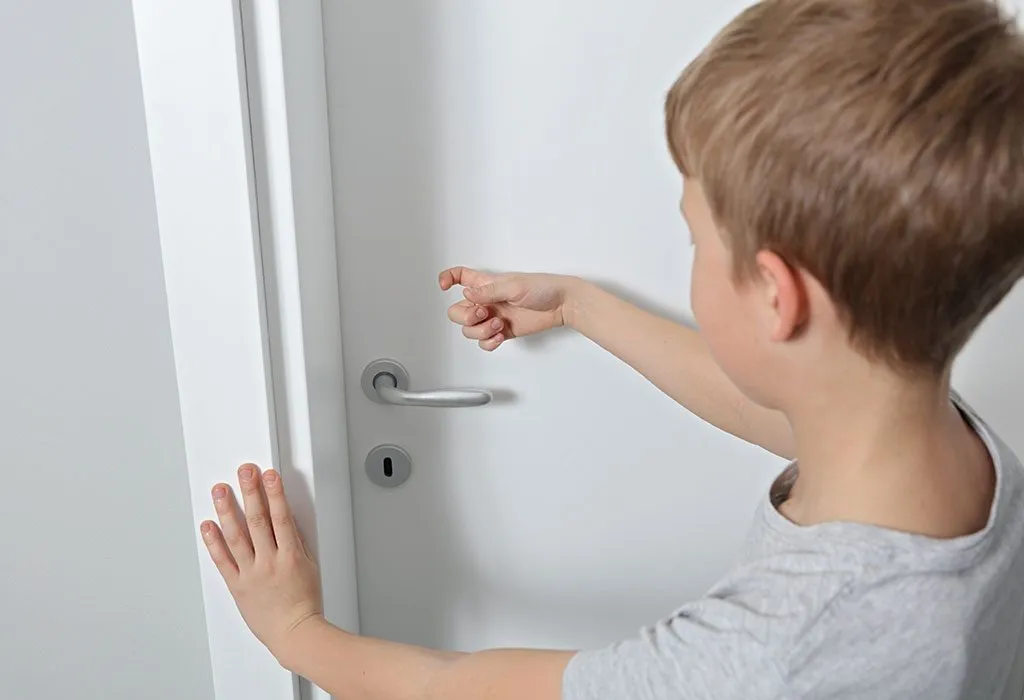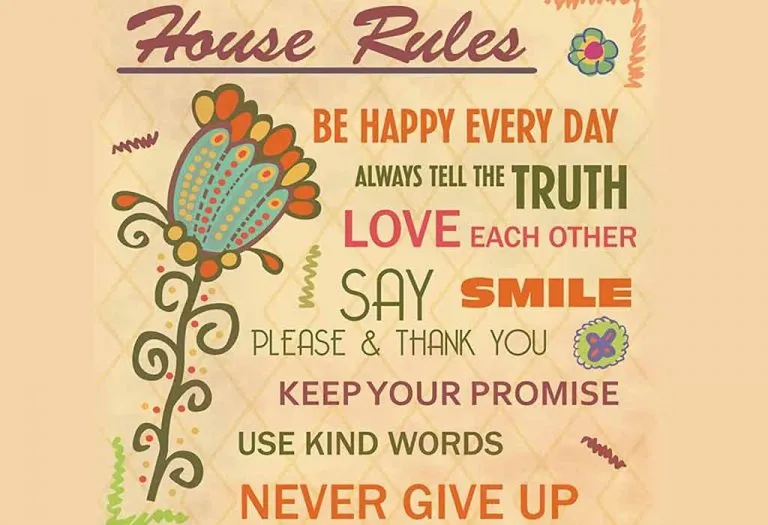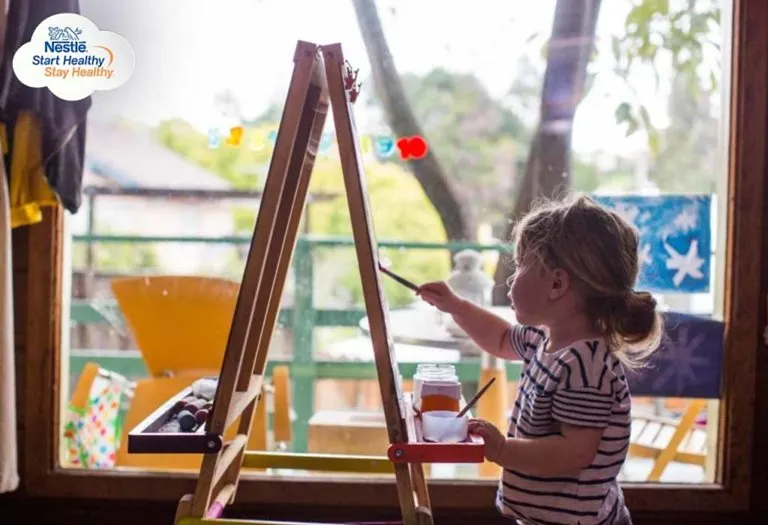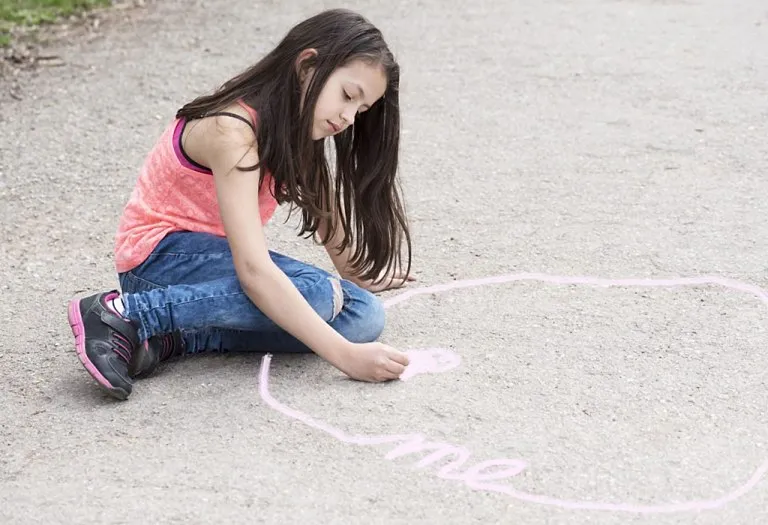30+ House Rules for Kids That Every Child Should Follow
- How Should Parents Set House Rules?
- 32 Important House Rules for Kids
- What to Do If Rules Are Broken
- FAQs
It’s a common experience for parents; the house is often falling into chaos no matter how hard you try to maintain order and discipline. So how is it that schools manage to get most children in line despite each of them being a terror at home? It’s rules! While children don’t develop reasoning abilities until 5 or 7, they instinctively follow the rules when enforced in the right manner. Therefore, to keep that circus in order at your place as a parent, you need to establish and enforce a simple list of rules for your home.
How Should Parents Set House Rules?
You will soon find out that writing down a list of rules and posting it on the fridge will not work, even on the first day. It’s essential to lay down a framework and think about how you can approach it. Here are some guidelines for setting up household rules:
1. Discuss with your partner
Whether you are setting up house rules for toddlers or older children discuss the goal of the rules clearly with your partner. What is it that you’re trying to accomplish with the rules? Are they general rules to raise the children or to set the house in order when dealing with a child who has behavioral problems? Have clear goals about these as the last thing you need are pointless rules.
2. Hold a family meeting
There’s nothing like a serious family meeting to highlight the seriousness of the situation especially when you have preschoolers or preteens. Get the family together and decide on the rules. Allow the children to pitch in, you might be surprised at how productive it can be.
3. It starts with teamwork
The family needs to run as a unit to get the machinery running. Team work is how you will respect each other’s space, opinions and actions in contributing to the household. A simple rule would be to ask permission before borrowing an item.
4. Keep it clear and concrete
Unclear goals and rules are just waiting to break and fall apart. Children need structure to thrive and while they claim to hate the rules they need it to keep things predictable and feel secure. A strong rule such as not missing out on chores will keep everybody in order.
5. Write it down
The success of implementing rules depends on how often they are reminded of it. Write down the rules on a sheet of paper and stick it to a prominent place such as the refrigerator’s door where it can be seen. For younger children you can make an illustration and hang it wherever necessary.
6. Compensate for different age groups
If you have children with significant age difference then you will have to adjust your rules to fit them and their stage of development. One example is bed time. You cannot send your 3 year old and your 10 year old to bed at the same time!
7. Set different rules for inside and outside the house
You may allow your kids to run inside your house and play with whatever toy they wish. However, when they visit grandma or a friend they cannot do the same. So have clear rules for discipline when outside.
8. Lead by example
If you don’t practice what you preach, the rules won’t stick. Your kids constantly watch and learn from your behaviour. They would relax at the first hint that you do not strictly follow the rules in the first place.
9. Use Praise and Consequence
Praise is a great motivator that keeps children in line. On the other hand, appropriate consequences will also help enforce the rules of the house. Remember that praise works better, so make it matter.
10. Reevaluate rules when necessary
Sometimes the rules you’ve set might be holding something bigger and better back. In such instances, you could reevaluate and change to improve it.
32 Important House Rules for Kids
Here are the important house rules for preschoolers:
1. Always say “please” and “thank you.”
Using polite words like “please” when asking for something and “thank you” when receiving it shows respect and gratitude. It helps create a positive and friendly environment at home and everywhere you go. These small words make others feel appreciated and valued, and they reflect good manners that will help you build strong relationships throughout your life.
2. Keep your hands and feet to yourself.
Respecting others’ personal space is important for maintaining a safe and comfortable environment. Keeping your hands and feet to yourself prevents accidents, avoids hurting others, and shows that you care about their well-being. This rule also helps you develop self-control and teaches you to interact with others in a respectful and considerate way.
3. Listen when others are speaking.
Listening carefully when someone is talking shows that you value their thoughts and feelings. It helps you understand their perspective and respond appropriately, making conversations more meaningful. Good listening skills also build trust and strengthen relationships, as people feel heard and respected when you pay attention to what they have to say.
4. Clean up after yourself.
Putting away toys, throwing trash in the bin, and tidying up your space teaches responsibility and keeps the home clean and organised. When everyone cleans up after themselves, it reduces the workload for others and creates a pleasant environment for the whole family. This habit also prepares you for taking care of your belongings and spaces as you grow older.
5. No running inside the house.
Running indoors can lead to accidents, like knocking things over, tripping, or getting hurt. Walking calmly inside ensures everyone stays safe and prevents damage to furniture or belongings. This rule also helps maintain a peaceful atmosphere at home, where everyone can relax without worrying about sudden noises or disruptions.
6. Share toys and take turns.
Sharing teaches kindness and fairness, which are important qualities for building strong friendships. Taking turns with toys or games helps everyone have fun and avoids arguments, making playtime enjoyable for all. Learning to share also prepares you for working well with others in school, sports, and other group activities.
7. Knock before entering a closed door.
Knocking before entering shows respect for others’ privacy and personal space. It gives them a chance to prepare or say “come in” before you enter their room. This simple act of courtesy helps build trust and ensures that everyone feels comfortable and respected in their own space.

8. Use indoor voices when inside.
Speaking softly or using an “indoor voice” keeps the home peaceful and prevents unnecessary noise that might disturb others. It’s especially important when someone is resting, studying, or working. Using an appropriate volume shows consideration for others and helps maintain a calm and pleasant environment.
9. Ask permission before borrowing something.
Asking before using someone else’s belongings shows respect for their property and personal space. It ensures that you have their approval and avoids misunderstandings or conflicts. This rule also teaches you to value others’ things and builds trust, as people will know you’ll treat their belongings with care.
10. Be kind to everyone, including pets.
Treating others, including animals, with kindness and care creates a loving and happy home. It helps build strong, positive relationships and teaches empathy and compassion. Being kind to pets also ensures their well-being and shows that you understand the importance of caring for all living creatures.
11. Wash your hands before eating.
Washing your hands removes germs and dirt, which helps keep you healthy and prevents the spread of illness. It’s especially important before meals to ensure that you don’t ingest harmful bacteria. This simple habit is a key part of maintaining good hygiene and overall health.
12. No jumping on the furniture.
Furniture is designed for sitting or resting, not for jumping. Jumping on it can cause damage, like breaking or tearing, and may also lead to injuries. Playing safely on the floor or outside ensures that furniture lasts longer and that everyone stays safe.
13. Finish your homework before playing.
Completing homework first ensures you stay on top of your responsibilities and do well in school. It also allows you to enjoy playtime without worrying about unfinished tasks. This rule teaches time management and helps you develop a strong work ethic.
14. Be honest and tell the truth.
Honesty builds trust and strengthens relationships. Telling the truth, even when it’s hard, shows integrity and helps others rely on you. Being honest also helps you feel good about yourself, knowing that you’ve done the right thing.
15. Help with family chores.
Pitching in with chores teaches teamwork and responsibility, and it shows that you care about your family. Helping out also makes the home run more smoothly and ensures that no one person is overwhelmed with tasks. It’s a great way to contribute to the household and learn important life skills.
16. No name-calling or hurtful words.
Using kind words creates a positive and supportive atmosphere at home. Avoiding name-calling or hurtful language prevents feelings from being hurt and keeps relationships strong. Speaking kindly shows respect and helps everyone feel valued and appreciated.
17. Eat meals together at the table.
Eating together as a family encourages bonding and good manners. It’s a great time to share stories, discuss your day, and connect with each other. Family meals also provide an opportunity to practice conversation skills and enjoy quality time together.
18. Turn off lights and electronics when not in use.
Saving energy is good for the environment and helps reduce electricity bills. Turning off lights and electronics when you’re done using them conserves resources and teaches you to be mindful of your impact on the planet. It’s a simple habit that can make a big difference over time.
19. Respect bedtime rules.
Going to bed on time ensures you get enough rest to stay healthy and energized for the next day. A consistent sleep schedule helps your body and mind function at their best. Respecting bedtime rules also gives parents some quiet time in the evening to relax and recharge.
20. No interrupting when others are talking.
Waiting your turn to speak shows respect and allows everyone to share their thoughts without being cut off. Interrupting can make others feel unheard or frustrated. Practising patience and listening first helps create smoother and more meaningful conversations.
21. Keep your room organised.
A tidy room makes it easier to find things and creates a calm, pleasant space for you to relax and play. Keeping your room organised also teaches you to take care of your belongings and prepares you for managing larger spaces as you grow older. It’s a habit that can reduce stress and improve focus.
22. Be grateful for what you have.
Appreciating what you have, instead of always wanting more, teaches contentment and helps you focus on the good things in life. Gratitude fosters a positive mindset and strengthens relationships, as people appreciate when you acknowledge their efforts or kindness. It’s a valuable attitude that can bring happiness and fulfilment.
23. Follow screen time rules.
Limiting screen time ensures you have time for other activities like playing outside, reading, or spending time with family. Too much screen time can affect your sleep, health, and social skills. Following these rules helps you maintain a balanced lifestyle and develop healthy habits.
24. Apologise when you make a mistake.
Saying “I’m sorry” when you’ve done something wrong shows that you take responsibility for your actions and care about others’ feelings. A sincere apology can repair relationships and help everyone move forward. It’s an important part of growing into a thoughtful and considerate person.
25. Be a good sport, whether you win or lose.
Playing fair and staying positive, whether you win or lose, shows good character and makes games fun for everyone. Being a good sport means celebrating others’ successes and handling disappointment gracefully. It teaches resilience and helps you build strong, respectful relationships with others.
26. Always try your best.
Putting effort into everything you do, whether it’s schoolwork, chores, or hobbies, helps you learn, grow, and feel proud of your accomplishments. Trying your best builds confidence and shows that you value hard work and perseverance. It’s a mindset that will help you succeed in all areas of life.
27. Do not run into a busy street.
Running into a busy street is extremely dangerous and can lead to serious accidents or injuries. Always stop, look both ways and hold an adult’s hand when crossing the street. This rule ensures your safety and teaches you to be aware of your surroundings, especially near traffic.
28. Do not answer the door when mom is in the shower, and nobody else is at home.
Answering the door when you’re alone or when an adult is unavailable can put you at risk. It’s important to let a trusted adult handle visitors or deliveries. If someone knocks, wait for an adult to respond or ignore it if you’re unsure. This rule keeps you safe and prevents potential dangers.
29. Brush your teeth before bedtime.
Brushing your teeth before bed removes food particles and bacteria, preventing cavities and keeping your mouth healthy. It’s an essential part of your daily routine that ensures strong teeth and fresh breath. Making this a habit now will benefit you for the rest of your life.
30. Drop all dirty clothes in the laundry basket.
Putting dirty clothes in the laundry basket keeps your room tidy and makes it easier for laundry to get done. It also prevents clothes from getting lost or mixed up with clean items. This small habit helps maintain cleanliness and teaches you to take responsibility for your belongings.
31. Wash your hands and feet after outdoor playtime.
Outdoor play can leave your hands and feet dirty or exposed to germs. Washing them after playing removes dirt, bacteria, and allergens, keeping you healthy and your home clean. It’s a simple way to practice good hygiene and feel refreshed after being outside.
32. The dinner table is a phone-free zone.
Keeping phones away during meals encourages family bonding and meaningful conversations. It allows everyone to focus on each other and enjoy the meal without distractions. This rule helps create a positive and connected atmosphere during family time.
What to Do If Rules Are Broken
Typically, parents decide the consequences of broken rules; however, it’s better if the consequences are something that is agreed upon with your child. For example if your child breaks one of the healthy habits rules with toys and playtime and you ask them the consequence, they might reply with “I guess I won’t get to play with the toy for a while”. Therefore rather than coming down on them over a broken rule, you could go with “Looks like you’ve decided not to play with those toys for a while”. Children are more accepting of the rules and consequences they helped create.
FAQs
1. What if a house rule feels unfair to a child?
If a child feels a rule is unfair, they should respectfully express their feelings to their parents and explain why they feel that way. Parents can then discuss the reasoning behind the rule and, if appropriate, adjust it. Open communication helps kids feel heard and teaches them to negotiate respectfully.
2. How can house rules be adapted for guests or playdates?
House rules can be adapted for guests by explaining them politely and focusing on safety and respect. For example, remind guests to use indoor voices or clean up after playing. Parents can also temporarily adjust rules to make guests feel welcome while maintaining core family values.
3. How can house rules help during stressful times?
House rules provide structure and predictability, which can be comforting during stressful times. Consistent routines, like family meals or bedtime rules, create a sense of stability. Clear expectations also reduce conflicts, making it easier for kids and parents to navigate challenges together.
4. How can house rules be made fun for kids?
House rules can be made fun by turning them into games or challenges. For example, “Who can clean up their toys the fastest?” or creating a reward system for following rules. Adding a playful element encourages kids to participate willingly and makes rule-following enjoyable.
Good house rules for kids keep things together and help raise your children to become responsible adults. When formulating them for infants, you can have complete control over what goes into it. However, when making house rules for 8-year-olds or older children, have them sit with you and draw clear boundaries.
Also Read:
Rules for Your Kid’s Safety at Home
Safety Rules to Follow in School
Road Safety Rules & Signs for Kids
Innovative Punishment Ideas for Children
Important Family Rules to Keep Your Life Running Smoothly
Was This Article Helpful?
Parenting is a huge responsibility, for you as a caregiver, but also for us as a parenting content platform. We understand that and take our responsibility of creating credible content seriously. FirstCry Parenting articles are written and published only after extensive research using factually sound references to deliver quality content that is accurate, validated by experts, and completely reliable. To understand how we go about creating content that is credible, read our editorial policy here.























